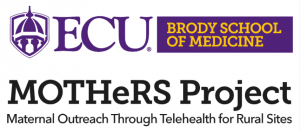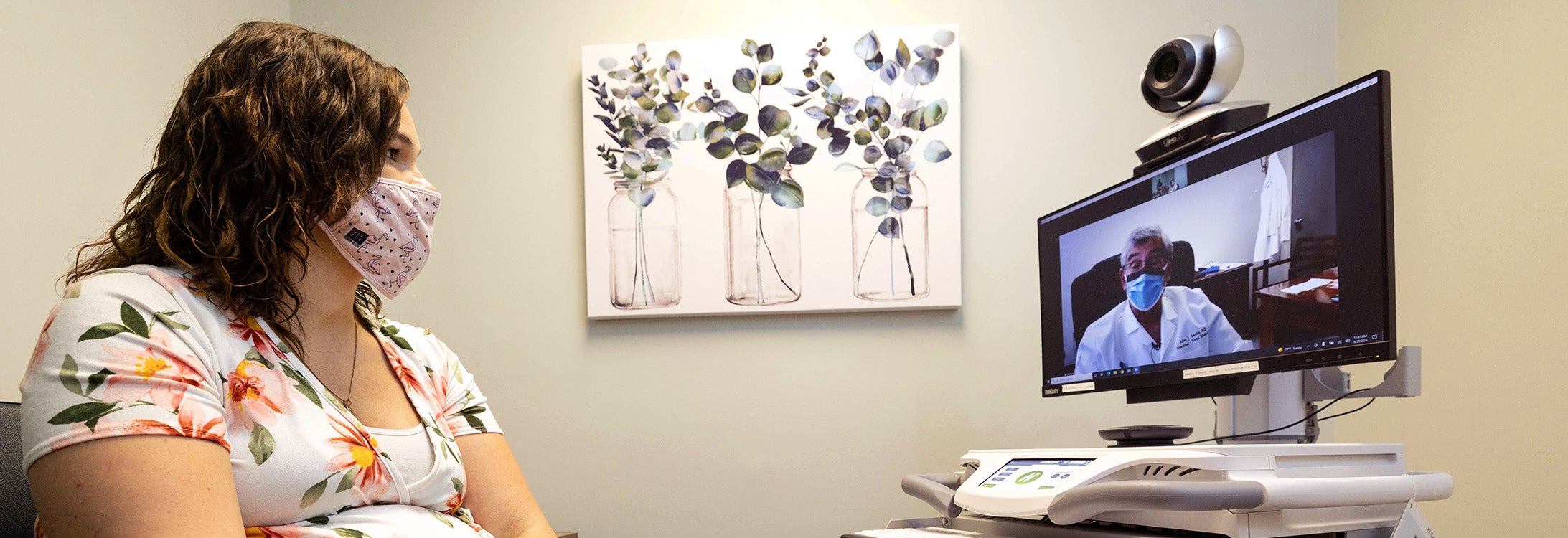Home
The Maternal Outreach Through Telehealth for Rural Sites (MOTHeRS) Project was established in 2020 with an investment from United Health Foundation (UHF). The participating entities include ECU Health Departments of OBGYN, Psychiatry, Family Medicine, and the Center for Telepsychiatry and e-Behavioral Health to increase access to health care and improve health outcomes for mothers and babies. This project uses a multidisciplinary approach to address the added barriers and challenges stemming from COVID-19 on the maternal fetal and newborn population in eastern North Carolina, including:
- Obstetric care for high-risk pregnancies
- Mental health needs of expectant and new mothers, and
- Food insecurity
Telehealth and face-to-face services are rendered to patients at the participating community-based primary care obstetric clinics, nearby health departments, and other clinics in the region by a variety of specialists and health professionals.

Goals
-
Enhance access to maternal health services
-
Enhance patient convenience
-
Reduce geographic health disparities
-
Reduce professional isolation
-
Improve coordination of care across the health care system
-
Improve patient outcomes
-
Enhance recruiting and retention of health professionals in underserved areas
To learn more about the challenges regarding maternal and infant health in the United States and North Carolina, click here.
The United States continues to see a rise in maternal mortality rates with the highest rate of any other developed country. This rate is particularly higher for African American women, women living in rural areas, and women with underlying conditions. Prior to COVID-19, North Carolina ranked 30th in maternal mortality and 41st in infant mortality (top rank=1).
More than 50% of the women our providers serve are overweight or obese. Of the 37 North Carolina counties along or east of the I-95 corridor: 27 have heart disease mortality rates higher than the national and state averages, and 22 have diabetes mortality rates higher than both the national and state averages. ECU is the only source for high-risk prenatal care in these counties.



